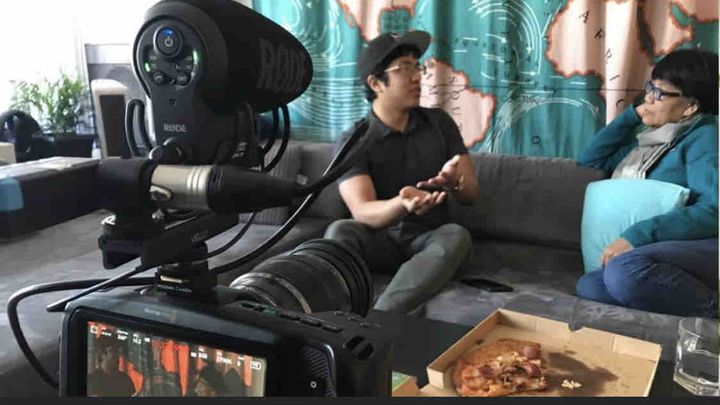
Cambodian Heroes Project
My goal is to create a virtual platform where Cambodian survivors are recognized by their loved ones to validate their stories and show that their lives matter.
Similar to the Jewish community and the Shoah Foundation’s vision regarding the holocaust, I hope to develop empathy, understanding, but more importantly, respect, for Khmer Rouge survivors through this project.
By the end of 2022, I want to create this platform to honor or highlight Khmer Rouge survivors. I wouldn’t go as far as calling it a virtual museum yet, but it’s very similar where we acknowledge these survivors for their courage and resilient for the past 40 years. Once this virtual space is completed with approximately 50 survivors, hopefully more of their peers, as well as others in the community, will feel empowered to participate.
Time is running out. We need to honor our survivors, as we are losing more and more of them each day. Who better to honor them than their loved ones?
Between 1975 and 1979, an estimated two million Cambodians died when Pol Pot and the Khmer Rouge took control of Cambodia. Museums, burial grounds, and stupas were built to honor those two million for the injustice that happened during those four years.
This virtual space is similar to those museums, burial grounds, and stupas, but it’s going to offer a lot more than bones, skulls, and faces of victims that were photographed by the Khmer Rouge in a torture chamber, or prison cell. We don’t know who these people were, or where they came from. Just that they were victims who were killed by the Khmer Rouge. We know more about Pol Pot and the Khmer Rouge than we do the two million.
We can flip the script—focus less on Pol Pot and the Khmer Rouge, and more on our survivors, people who are our foundation. If it weren’t for their courage and will to live through one of the worse genocides in history, we wouldn’t be who we are today. We will regret if we don’t act now to preserve some of their stories, but more importantly, honoring them by creating this platform for them, and in many ways, for future generations to have access to.
How can I honor a survivor? Khmer Rouge survivors have always been silence when it comes to dealing with Cambodia’s Killing Fields and the trauma associated to it; But this space isn’t just about their connection to the genocide, or fixating over this past. Instead, it’s a place for survivors and their families to feel free to share whatever stories they want. It can be their experiences as refugees in the early 80’s, or as simple as a dance technique, or sharing a cooking book. Again, it’s whatever they’re comfortable with.
We have already begun to construct and experimenting this space by using a YouTube channel, titled Cambodian Heroes Project.
https://youtube.com/user/tongsiv
There are already a few samples of survivors on the channel: Classical Dancer and Instructor, Sophiline Shapiro, Bokator Master San Kim Sean, and Accordion player, Daran Kravan. There’s also 28 year-old Soup Pha, who honors his father, 65 year-old survivor, Ricky Nhev, with a music video, titled “My Family Living in an Era of Darkness.”
We will continue to update this platform and its design as the project moves forward with more content and participants. The content and stories will dictate how the space looks like. We’re also planning to create similar channels, or space on Vimeo, Facebook, websites, or other social media in the future.
I’ve assembled a modest team to help me along the way:
Kimmy Maniquis, Executive Director at Search to Involve Pilipino Americans (SIPA) Long Beach CA
Maniquis, a daughter of Filipino immigrants, brings more than 20 years of experience in social justice, youth development, health equity, and community leadership.
Dave Kakashiba, Executive Director of East Bay Asian Youth Center (EBAYC)
David has over 30 years of leadership experience in the role as Executive Director and is known for his bold community leadership in the Bay Area, especially in Oakland, CA.
Pratna Kem, Assistant Director, Asian American Student Success Program at University of Massachusetts Boston
Pratna currently works in a student success programs which provides Asian American students with reading and writing support that is culturally responsive through workshops. He also works closely with the Cambodian community in Boston, the second highest Cambodian American population in America.
Amir Soltani, an Iranian-American writer, filmmaker, and human rights activist.
Amir’s graphic novel on protest and dissent inIran, Zahra’s Paradise, co-created with Khalil Bendib, was nominated for two Eisner Awards.
Amir is the producer and co-director of Dogtown Redemption, a documentary film about class, race and space chronicling the live of recyclers in West Oakland. It was broadcast on PBS and nominated for the Emmy.
I’m trying to fundraise around $50,000 to continue to gather approximately 25 - 30 more survivors. The funds will be used towards travel and gear, specifically a video camera and an editing system. We’re also looking to hire an editor and a web expert to help design this virtual space.


